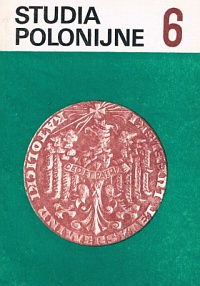Education Aid Society Devoted to St Josaphat in Westphalia
Main Article Content
Abstract
The fast-developing mining industry in the Ruhr valley occasioned a mass emigration of Poles to Germany. Since the Polish immigrants did not know German well, there was a necessity to establish Polish chaplaincy in the area. However, the Prussian government, for fear of awakening national tendencies among the Poles, made it difficult for Polish priests to work in the community, and from 1894 formally refused its consent to that. Dr Franciszek Liss, a Polish priest in the Ruhr valley realized that a chaplain from a Polish diocese would not carry out his duties undisturbed and therefore, he suggested that Polish immigrants in Westphalia should educate their own Polish priests who could then enter upon the pastoral duties for their people. Having, this in mind, Dr Liss established the „Towarzystwo Kolekcyjne” dedicated to St Josaphat (and also called „Swiętojozafacie") which was a scholarship foundation. Its aim was to give financial support to the young Polish immigrants, especially to those who studied to become priests. The Society was a charitable institution and its found was supported by the community’s contribution. In 1907 it was reorganized and renamed as the „Towarzystwo Pomocy Naukowej" (Education' Aid Society) dedicated to St Josaphat. Its activity ended after the 1st world war.
Thanks to the Society’s financial support several priests graduated from the seminar in Paderborn and many young Poles in Westphalia acquired a university education. Some of them returned to Poland, some, however, became activists in the Union of Poles in Germany.

